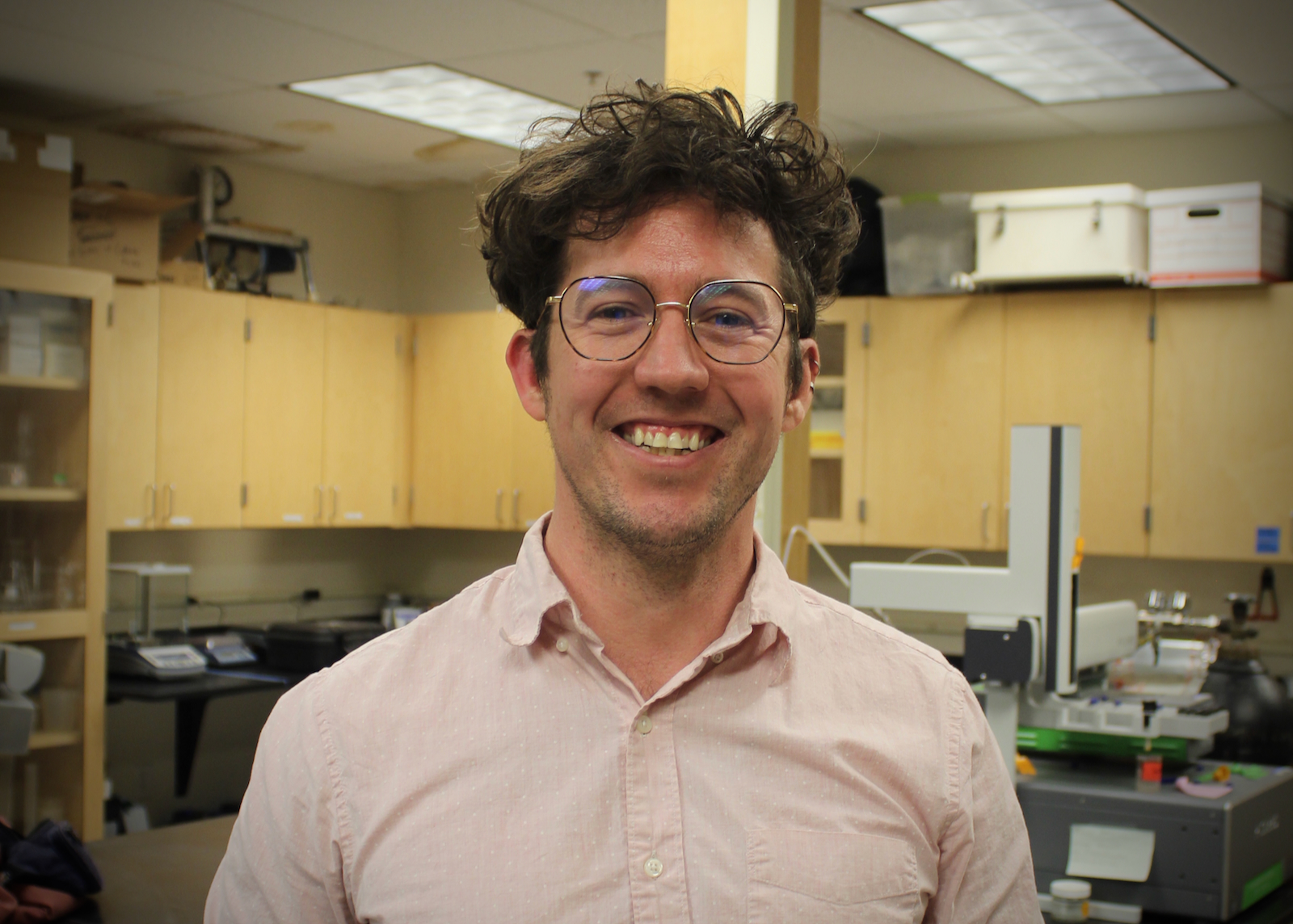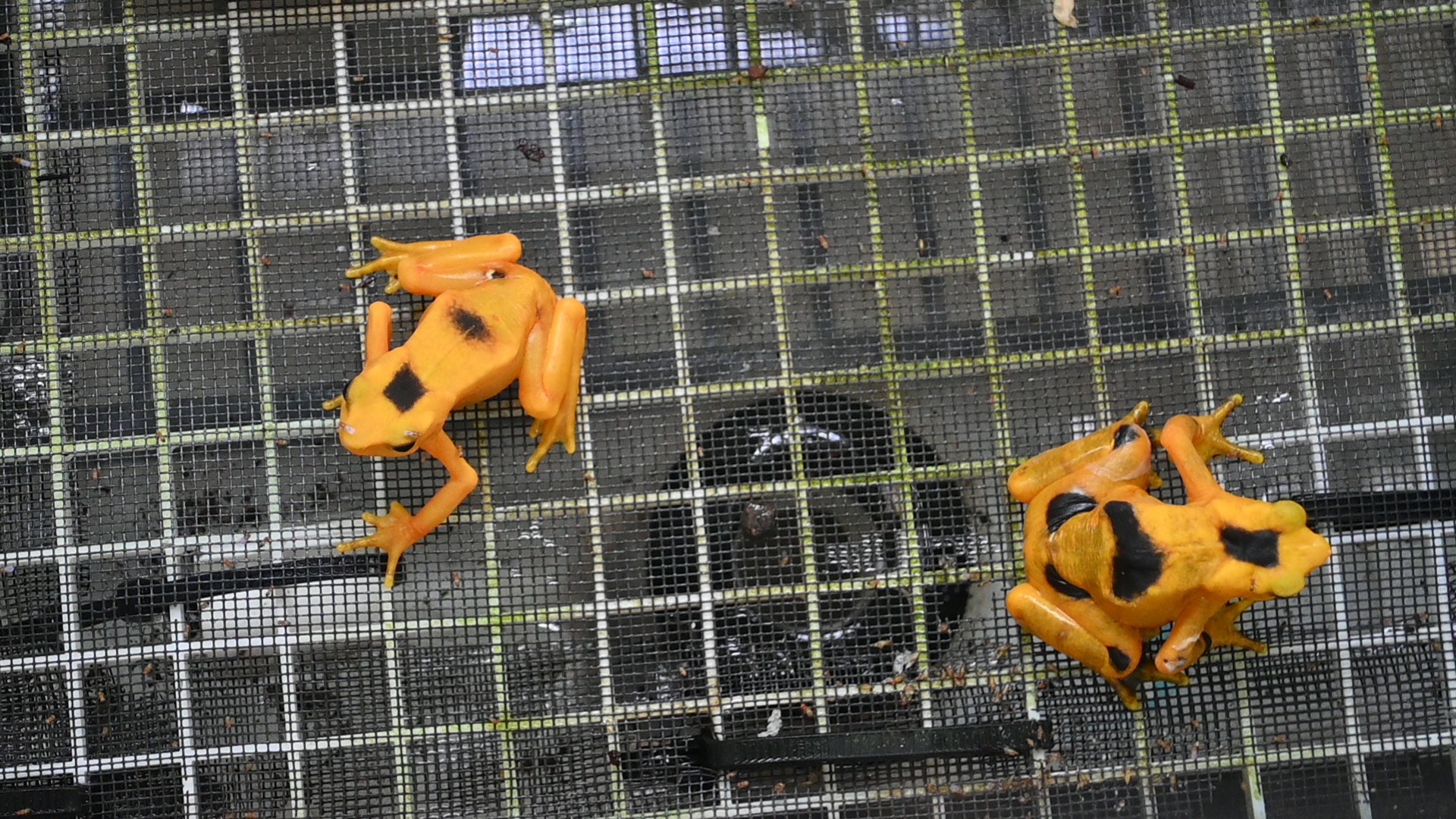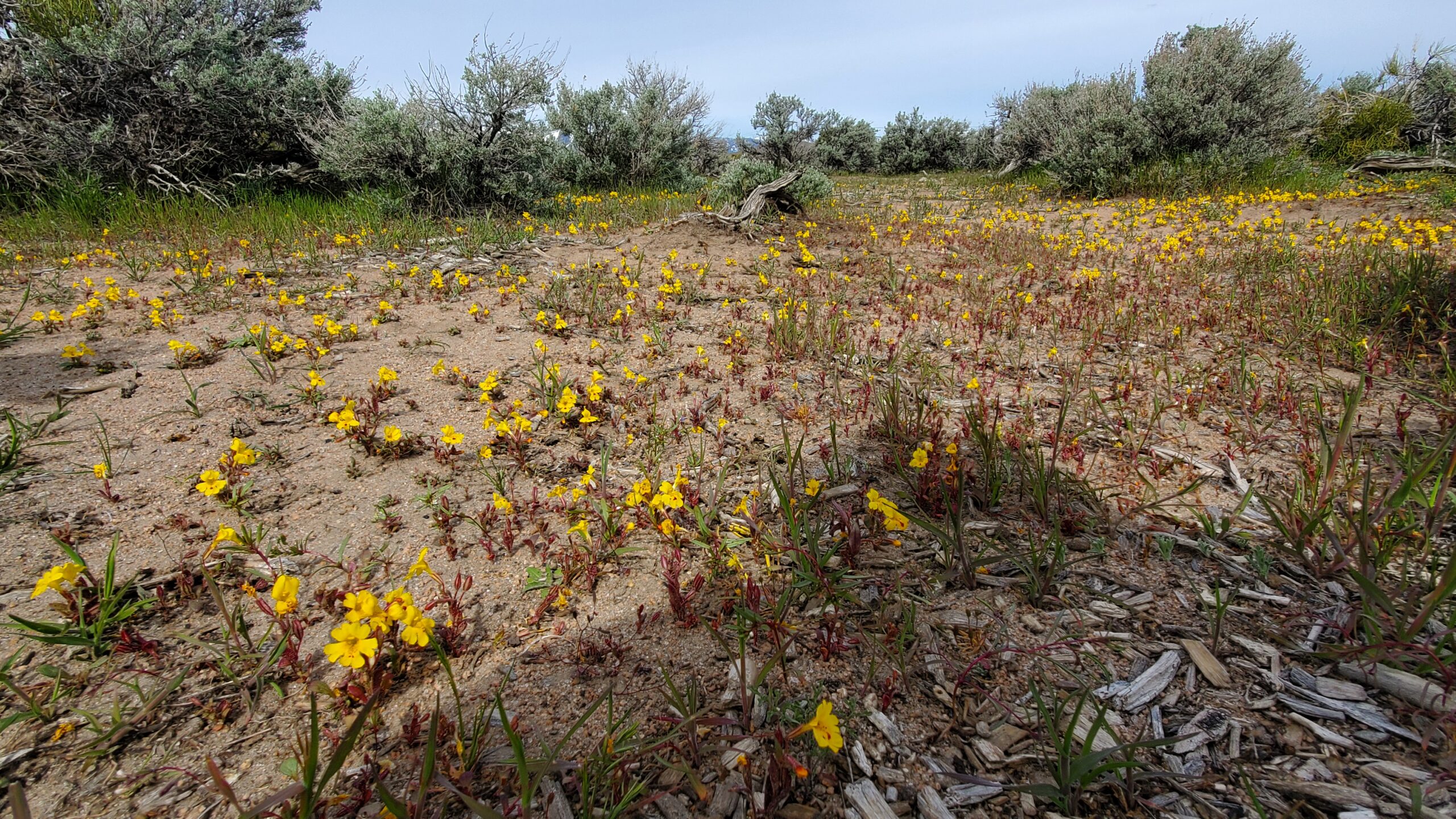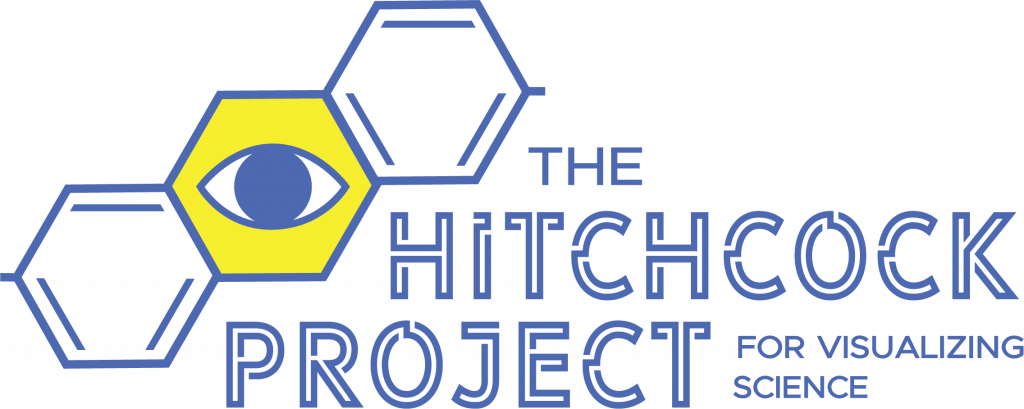Scott Allen, Ph.D., an assistant professor in the Department of Natural Resources & Environmental Science at the University of Nevada, Reno, conducts research in arid land ecohydrology. By studying the hydrology of ecosystems, he delves into the intricate relationships between water, carbon and ecosystems, particularly focusing on the dry climates prevalent in the western United States. As director of the Ecohydrology and Ecosystem Processes Lab at UNR, Allen and his team run various research projects dedicated to the complexities of these physical processes and their implications for water resource availability and ecosystem dynamics. Hitchcock Project science reporter Sydney Peerman recently spoke with Allen to learn more.
This interview has been edited lightly for length and clarity.
Q: Can you explain what it is that you study?
A: I guess most broadly what I study is how water and carbon and radiation interact with ecosystems. So, I study these physical processes, physical forcings on ecosystems and how they affect both the development, growth and transformation of ecosystems and landscapes. And then also how they control the reallocation of, largely, water.
For example, when it rains on a landscape, depending on what ecosystem is there, more water may end up in reservoirs, or in the ground, or in streams versus being returned to the atmosphere – evaporated, or used by plants, etc.
Q: Why is studying ecohydrology important?
A: The simple answer is to think about water resource availability, which is critically limited and controls the economies of Nevada, controls where people live, it controls which industries are in which locations…So just thinking about water, securing a natural resource that livelihoods depend on, is one reason to justify better understanding how much is used by vegetation before it reaches users. That’s the human-centric perspective.
But we’re also in this climate of, well, climate change, where droughts are becoming longer in duration, and could potentially become more intense. Precipitation is expected to come in higher intensities. And understanding how that water sticks around in the ground and continues to be accessed by plants, determines what those ecosystems are gonna look like. We’ve seen widespread mortality of some of the most common tree species in the west over the past 10 years. If that continues, what transformations will occur? And if so, that’ll then trickle down to changes in wildlife, changes in ecosystems and in general. I’m thinking about that first step of: “Where does the water go?,” and these process-level things to better understand maybe how these cascading effects might manifest.
Q: In what ways has climate change really impacted your research?
A: It is a direct focus and motivation for much of it. It’s also indirect, right? Like wildfire
intensification; there’s climate-change that drives wildfire intensification, which can relate to drought and soil-water availability, which then makes us want to better understand the basic processes of plant-soil-water interactions. So, there’s motivation that almost always links back to climate change.
My approach to research is I really like to break things down into the basic questions of ’why?’ as opposed to the ’what,’ if that makes sense. I think it’s important when thinking about climate change, because with climate change, we’re seeing totally new-to-Earth combinations of landscape and ecosystem and climate. Because if the climate changes and certain plants are being adapted for that previous climate, then we have a new climate and species combination that didn’t exist before. If we were to try to base our predictions into the future on the trends we’ve seen in the past, we wouldn’t be able to do that cause it’s in the realm of speculation…So we need to know why these changes are occurring to make predictions of the future as opposed to just using what we’ve seen in the past to predict the future.
Q: Can you discuss any specific projects you’re currently working on?
A: One of the ones that many of us in the group are working on is to understand, something I alluded to before, how wildfire affects water use by ecosystems and landscapes. And we’re specifically focusing on the sagebrush landscape that dominates to the east of here, and for much of Nevada – dry shrublands. The question is: well, we know if there’s a wildfire and it takes out all the vegetation, in the short term there’s gonna be less water used by that ecosystem. But how that proceeds in the following years or tens of years, that we don’t really know. And we suspect that to return to the natural type, it’s gonna be a long process, if it occurs at all. With climate change it might be a totally, totally different ecosystem. So, trying to track that trajectory of ecological development and pair it to the function of control over water fluxes, that is the goal of that project.
Q: Is there any misinformation in your field of study that you would want more people to know about?
A: Well, I have an anecdote that sort of relates to that. There was a very high-profile paper that came out a few years ago, a published science article that was basically arguing the degree to which we could make water more available by clear-cutting forests. And there is a validity to that argument. But the way in which it was presented was short-sighted that it could have caused, you know… Science can drive policy. And a policy could have been based on that – that would’ve been misinterpreting reality though. So I, with a team of a few other people, actually wrote a rebuttal to that article that resulted in that article being retracted. To me, that’s of the most useful things I’ve done in my career so far, is to work on this very high-profile article that was getting tons of press attention and whatnot, to point out the flaw in their argument so that people could not misuse that flaw [to justify clear-cutting forests for water].
More information
For more information on Scott Allen and his research, please visit: https://sites.google.com/view/eeplaballenunr
Sydney Peerman is a senior in the Reynolds School of Journalism and a science reporter for the Hitchcock Project. She is majoring in journalism with a minor in environmental studies and political science.






